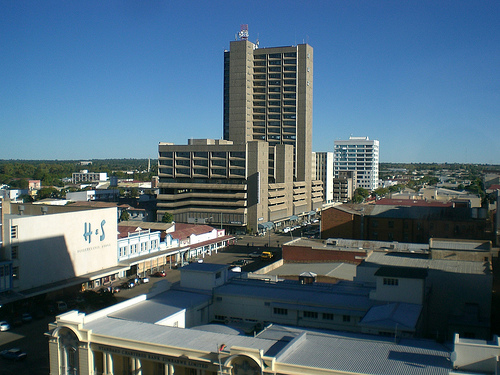
By Burzil Dube
COVID-19 continues to wreak havoc in the country as evidenced by government’s recent extension of the Level Four lockdown whose strict implementation has to be adhered to as faltering is not an option.
To some of us in travel and touring escapades, our supplications are for this pandemic to miraculously come to an abrupt end so that we revert to our normal way of living.
However, Yours Truly’s wishful thinking is like transposing the whole of Bulawayo and its environs to Victoria Falls or vice versa. Barring any technological advancement, Covid-19 could be here to stay and it takes two to tango.
Talking of Bulawayo and its environs, Yours Truly recently came across interesting interpretations on social media concerning how some suburbs got their names in the country’s second city.
However, some if not all information has in the past been trending on all forms of social media and certain quarters of the populace could have been starved of such interesting details.
Here we go.
It is said that when King Lobengula of the Ndebele state rose to the throne following his father’s death, he named the area Bulawayo because of opposition to his quest for kingship. Two turbulent years of ‘civil war’ passed before his enthronement.
- Chamisa under fire over US$120K donation
- Mavhunga puts DeMbare into Chibuku quarterfinals
- Pension funds bet on Cabora Bassa oilfields
- Councils defy govt fire tender directive
Keep Reading
It was named to express Lobengula’s feelings that he was the one meant to be killed (ngingobulawayo).
The designation Bulawayo was also a historical name of a similar city in Zululand.
Makokoba is one of the oldest high density suburbs in the City of Kings and was named following some actions of a Mr Fallon, who was a native commissioner. He used to move around the particular area with a walking stick and was nicknamed Makhokhoba.
The name comes from the word “ukukhokhoba” which in Ndebele language means “bending and walking with a stick”.
Fallon was popularly known as the little old man who walks with the aid of a stick.
Barbourfields suburb was named after Henry Robert Barbour, who was the mayor from 1924 to 1926. However, Yours Truly could not ascertain whether they are the same family, who owned Barbours departmental stores.
The suburb of Nguboyenja came into being after one of King Lobengula’s sons was whisked out of the country by Cecil John Rhodes to provide him with western education in the Cape Province in South Africa.
His name was Nguboyenja and the name came into being because one of King Lobengula’s wives had difficulties in conceiving. She was later treated through the use of dog parts, a practice still common even today.
This whole process is called ‘ukumiswa’ and the child is named either after the traditional doctor, who performed the whole operation or medical source.
This was an acknowledgement and statement of gratitude.
Matshobana was named after King Mzilikazi’s father while Sizinda was the name of Matabele regimental villages called iSizinda. At one time the brigade was stationed where the present suburb is situated.
Mabuthweni township was at times referred to as eZinkabini where men, who were resident at that place were not supposed to bring along their wives.
Frequent searches were executed to weed out women, who would have been smuggled without knowledge of the powers that be.
Amabutho refers to conscripted men ripe for training as soldiers during the Matabele statehood.
However, the practice was plagiarized by colonial settlers in efforts to make labour conditional to men, who had not brought their wives.
This was a ploy of emasculating men and in the process creating a subservient culture where they would usually be referred as ‘boys’.
The suburb of Njube was named after one of King Lobengula’s sons and is reported to have been the first to be born after enthronement of his father(Lobengula).
Nguboyenja was taken to Lovedale Institute in the Eastern Cape by Rhodes as part of extinguishing efforts to any future moves on resuscitation of a Ndebele state.
Mpopoma refers to a waterfall and the name was derived from a stream situated further west flowing into Khami River which had a waterfall.
Pumula is situated further west of Bulawayo and during the colonial era, it was stipulated that the city centre belonged to whites and Africans were to live in the peripheries.
The name was all about ongoing struggles to gain longer and more secure housing tenure for oppressed natives as Rhodesian laws did not give much recognition to blacks. Hence they needed somewhere to rest (‘phumula’) from the struggles.
Pelandaba became the name that was associated with the struggle for a more secure tenure and people would usually say ‘indaba iphelile’ literally meaning the matter (struggle) is over.
The location became a prestigious township where nationalists such as the late vice president Joshua Nkomo lived. It was meant to house a certain class of natives that needed to be differentiated from the rest.
More to follow in the next episode on other remaining suburbs situated within the City of Kings.
Till we meet again in the next column.
- Comments always welcome on: [email protected] or Twitter@DubeBurzil











